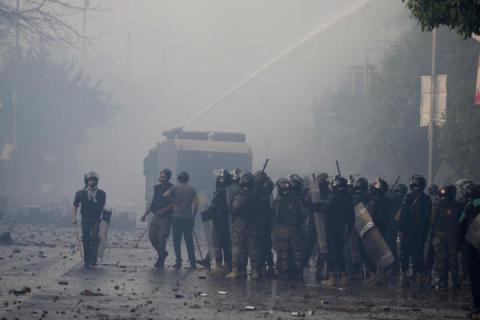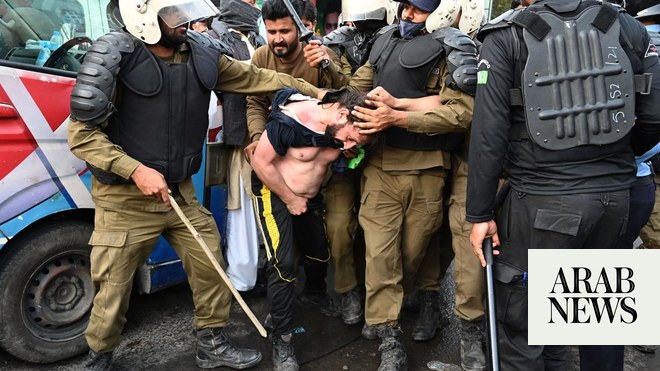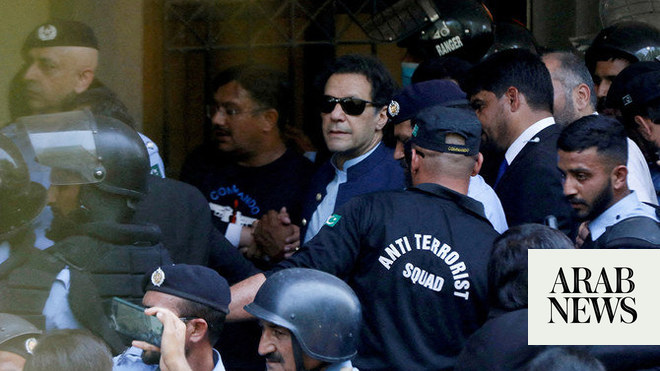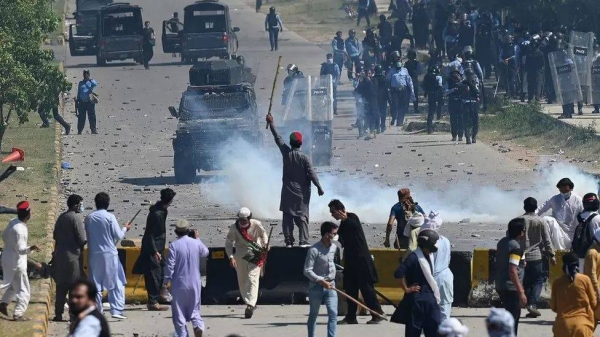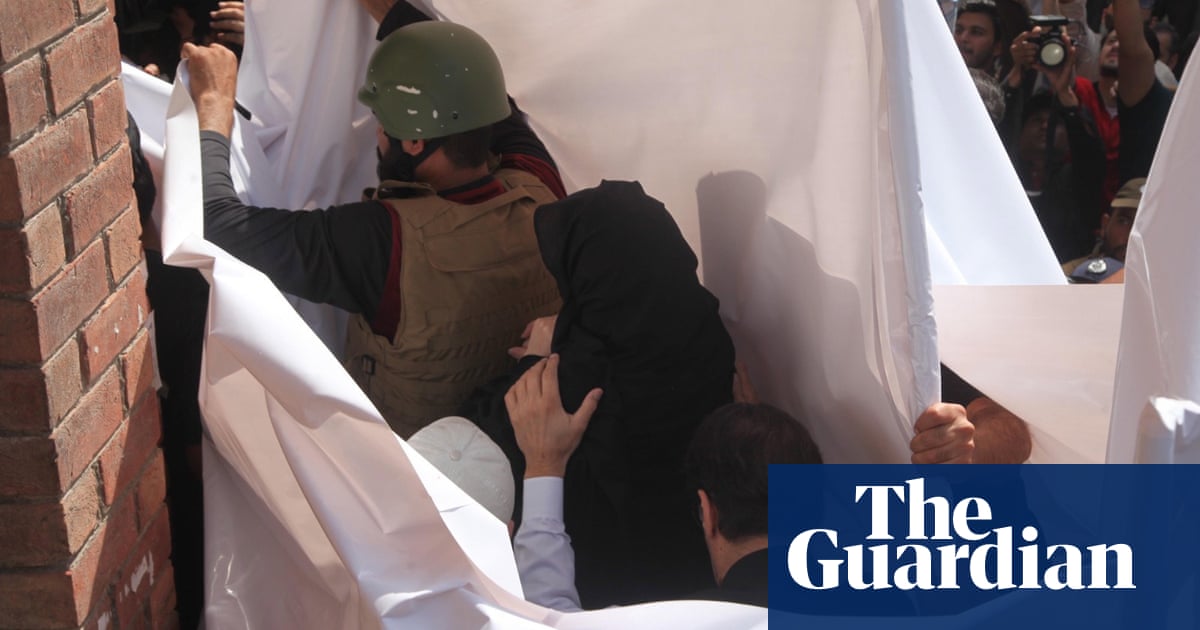
Pakistan’s former prime minister Imran Khan has been granted bail in several more cases as he continues to allege that the country’s powerful military plans to rearrest him imminently.
Khan, who is facing more than 100 cases, was granted bail by courts in Islamabad and Lahore in several cases relating to corruption and terrorism charges.
Khan’s lawyers also appeared before the Lahore high court, alleging that several “secret cases” had been filed against Khan they had not been informed about, and sought bail for all cases filed in the past two weeks. The court has reserved its judgment until later in the week. Khan did not appear before the court in Lahore, leading to questions from the judge about his whereabouts.
The previous day, his wife Bushra Bibi had been granted bail in a corruption case, after Khan alleged in a series of tweets that the military planned to arrest her as part of plan to “humiliate” him.
Since Khan was released from jail last Friday, after his arrest earlier in the week had been declared illegal by the supreme court, the political turmoil in Pakistan has showed no sign of relenting.
In recent days, Khan escalated his attacks on Pakistan’s powerful military establishment, in particular its most senior generals.
In an interview, Khan had openly accused the head of the military of having a “personal grudge” against him and being behind his arrest. And in a series of tweets this week, he alleged that the military planned to lock him away “for 10 years” by charging him with sedition. “This is a deliberate attempt to instil so much fear in people that when they come to arrest me tomorrow, people won’t come out,” he said in the tweet.
In a follow-up video message broadcast on Twitter on Tuesday, Khan, a populist with massive public support, reiterated his call for his followers to take to the streets and hold peaceful protests when he gave the command.
“When the nation decides that it won’t tolerate this oppression, when it decides that it won’t allow the violation of the constitution and that it wants elections – then no one will be able to stop them,” said Khan in his broadcast.
Meanwhile, hundreds of supporters of the ruling coalition government had gathered in their own protest on Monday outside the supreme court, accusing the chief justice who had declared Khan’s arrest illegal as being “biased” and giving “undue favours” to Khan.
The crackdown on members of Khan’s party, Pakistan Tehreek-e-Insaf (PTI) continued on Tuesday, with two senior leaders rearrested just hours after the court granted them bail. PTI leader, Fawad Chaudhry, sprinted back into Islamabad high court for protection after he found dozens of police waiting to arrest him after he was granted bail. Another senior figure in the party was remanded by an anti-terrorism court, relating to the violent protests that took place after Khan was arrested.
However, some in Khan’s party appeared rattled by his vehement anti-military rhetoric, which is unprecedented in a country where the power of the military is seen as absolute. ‘“We can change political parties but we cannot change our army. I have never gone against the army nor will I do it in the future,” said a former PTI minister Mahmood Baqi in a press conference announcing he was leaving the party.
The government and military also stepped up their rhetoric against those who had carried out violence during protests across Pakistan last week, accusing Khan and PTI members of conspiring to stir up the attacks.
The prime minister, Shehbaz Sharif, addressed a meeting of the country’s national security committee on Tuesday, stating: “I believe that whoever planned this and incited the vandalism, they are certainly guilty of terrorism.”
Controversially, the army announced their intention to charge civilians who had taken part in violent attacks on military and government buildings under the Pakistan Army Act, which is usually reserved for those in the military.
It was condemned by one politician from the ruling coalition as a “dangerous move” while Amnesty’s deputy regional director for South Asia, Dinushika Dissanayake, called it “alarming” and warned that “trying civilians in military courts is contrary to international law.”.




